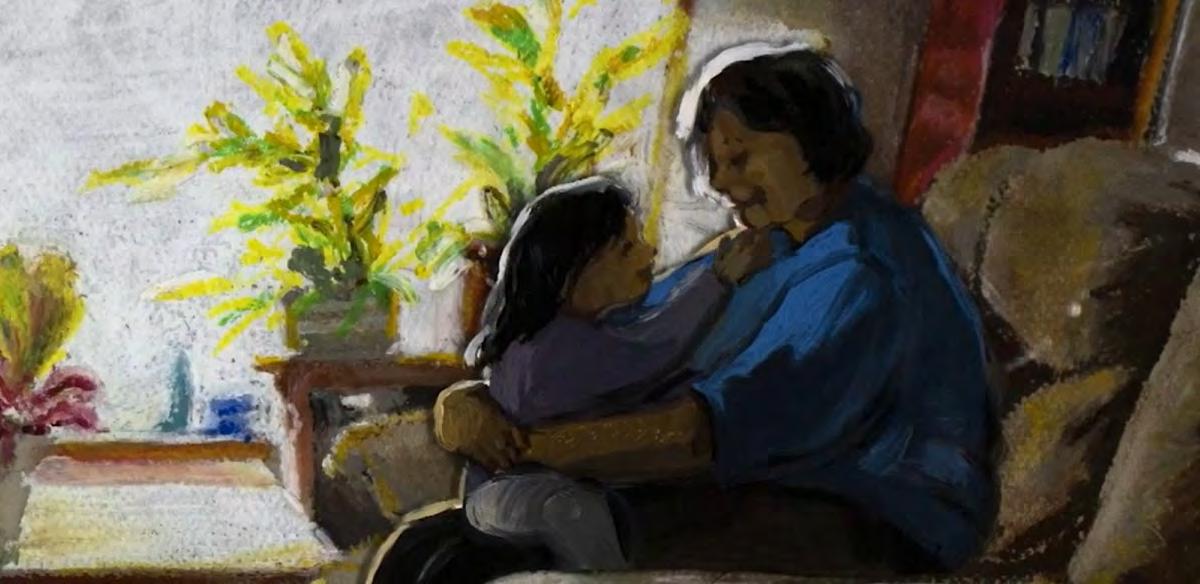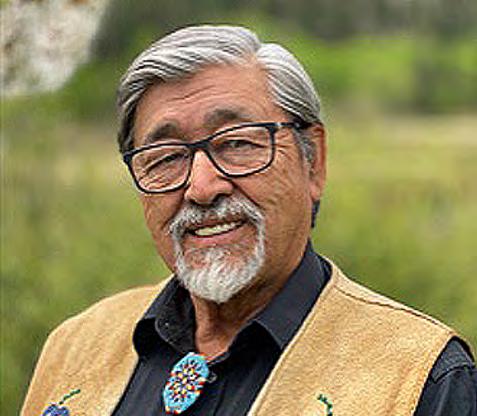
3 minute read
Animated short explores loss of language
We acknowledge the financial support of the Government of Canada.
Nous reconnaissons l'appui financier du gouvernement du Canada.
Member of the Ontario Press Council. The Ontario Press Council was created to defend freedom of the press on behalf of the public and press alike and to consider specific, unsatisfied complaints from readers about the conduct of the press in gathering and publishing news, opinion and advertising.
Complaints should go to: The Ontario Press Council, 2 Carlton St., Suite 1706 Toronto, Ont., M5B 1J3
Email: Info@ontpress.com Fax: 1-416-340-8724 www.ontpress.com
SEND US YOUR COMMENTS
Email us at: editorial@nnsl.com; mail to Box 28, Iqaluit, NU, X0A 0H0; or drop your letter off at our office at 102 Tumiit Plaza. All letters submitted must be signed with a return address and daytime telephone number so that we can confirm it came from you.
Not all letters will necessarily be published.
Preference is given to short letters of broad interest or concern. Letters of more than 200 words, open letters and those published elsewhere are seldom used. We reserve the right to edit for length or taste and to eliminate inaccurate or libelous statements.
Short film explores Indigenous relationship with own language and English
By Trevor Wright Northern
Loss of language remains an issue close to the heart of many Inuit. To explain the loss of language within one’s own lifetime can be difficult, said Megan Kyak-Monteith, the co-director and animator of Grape Soda in the Parking Lot.
Taqralik Partridge, who also co-directs, tells the story of the loss of language to English within her own family, losing Gaelic through the loss of her grandmother and her father’s troubles keeping Inuktitut alive in himself.
“My father, sent away with tuberculosis for years and years, lost his language so he spoke only English,” said Partridge in the short film.
“Found his tongue again but never lost the taste of English in his mouth.”
The short film explores Partidge’s memories with her relatives, being Inuk and losing Inuktitut and an Inuk’s relationship with English.
The matter of losing one’s own language also resonated with Kyak-Monteith, who’s Inuk but also part Scottish.
“When I was a kid back home when I could understand Inuktitut, to being able to understand it but not speak it, then now not being able to understand it. It’s nice to see other people put it into words, things I feel I still don’t know how to explain,” said Kyak-Monteith, who’s originally from Pond Inlet.
“People like my great grandmother who only spoke Inuktitut and I only speak English now. A lot of that has to do with me moving down south,” she added.
“I think the whole thing has to do with reconnecting to Inuktitut, relearning it and what it means to her and I felt really attached to that as well.”
In recent years she started working more with animation, previously working on another project in 2019.
“I usually work on oil paintings and started doing animations. I tried using materials I felt more comfortable using,” said Kyak-Monteith.
She used oil pastels for her background, put a pane of glass on top, set up the camera on top and painted on the glass, taking pictures of each frame and editing as necessary. The process is a little messy, but she’s comfortable with it, she said.
“It took a while preparing for it, but now I think I’m ready to do more animations in the future.”
The eight-minute short film Grape Soda in the Parking Lot is a part of the CBC Gem series How to Lose Everything, a series of animated short films by Indigenous peoples across Canada exploring the loss of their languages. Grape Soda in the Parking Lot is also available in Inuktitut.
The Pond Inlet filmmaker said she was able to meet with the other filmmakers in this series, and said she was proud to work with ”people I really admire as animators and writers.”
”It’s really nice to know we’re all making work together, all being Indigenous, all across Canada.”
Canada’s first Indigenous languages commissioner hopes to be operating by summer
Ronald Ignace was appointed to role in June 2021
Canada’s first commissioner of Indigenous languages said Monday he hopes to have his office fully operational by the summer — about two years after it was first announced.
Ronald Ignace appeared before a House of Commons committee that is studying the issue of Indigenous languages.

Prime Minister Justin Trudeau’s government has prioritized revitalizing Indigenous languages as one of its goals in advancing reconciliation with First Nations, Inuit and Metis communities across the country.
It passed the Indigenous Languages Act in 2019, which mandated the creation of a languages commissioner.
Ignace was appointed to the role in June 2021, along with several directors, and told MPs that the main focus to date has been on staffing up the office.
“The complexity and significance of our mandate and responsibilities requires us to take the appropriate time and steps needed to establish a solid foundation for this organization,” he said.
Because such a post has never before existed, Ignace said the group is building the office from the “ground up” and needs to take the time to get it right.
He says work has begun on researching what the status of Indigenous languages looks like in Canada, adding once that office is up and running, it would fulfil its reporting requirements on the matter.
Statistics Canada says data from the 2021 census shows the number of Indigenous-language speakers in the country has dropped overall, but noted some growth among the generation of those eight years old and younger.
-The Canadian Press

